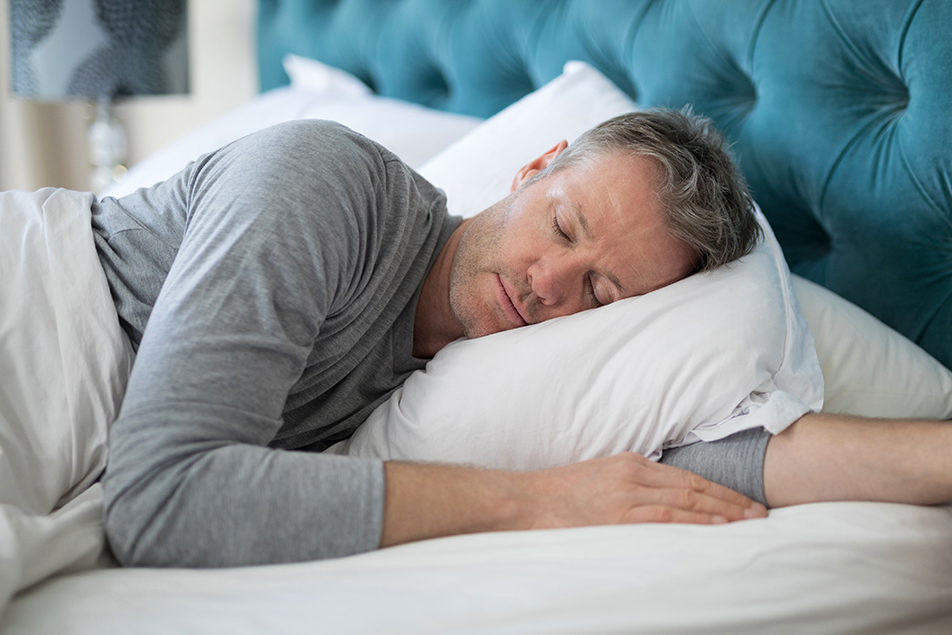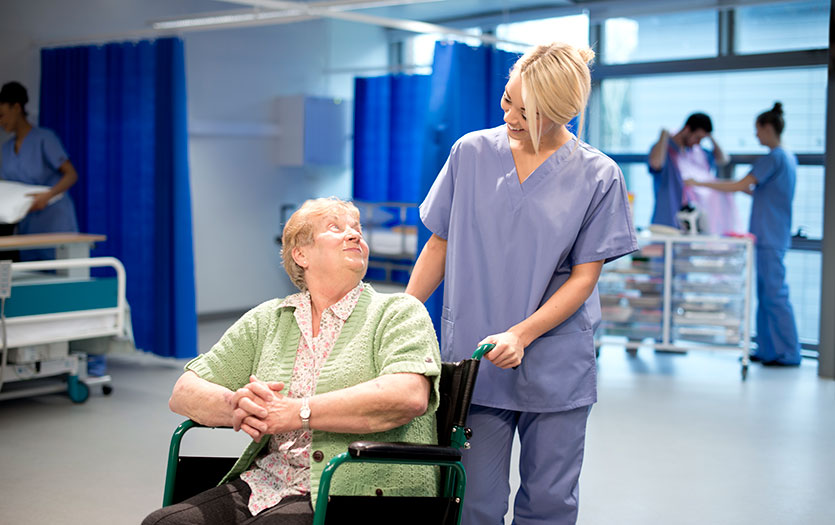
Tossing and turning, and even making multiple trips to the bathroom after falling asleep, are fairly common for many adults in our country. We struggle with proper sleep hygiene, stress management and powering down technology. But did you also know that inadequate rest can be linked to atrial fibrillation (AFib), a concerning heart condition? Jonathan Shirazi, MD, PPG – Cardiology tells us more.
September is Atrial Fibrillation (AFib) Awareness Month. What are the general warning signs of AFib?
There’s a common misconception that AFib only causes palpitations, but that’s not necessarily true for the majority of the patients I see in our AFib Clinic. Most of them have fatigue and shortness of breath and, for them, palpations are less common. It’s simply not as easy as noticing whether or not you’re feeling a palpation. Some AFib patients never experience this symptom and others only notice it if their overall heart rate is fast.
You could be experiencing AFib if you are feeling fatigue (out of normal), running out of breath during activities that you used to be able to do, intermittent dizziness or lightheadedness, or experiencing palpitations. The most common modifiable risk factors include elevated blood pressure, elevated blood sugar, excess alcohol consumption, smoking, obesity and untreated sleep apnea.
What are some clues that your sleep and/or heart health are less than ideal?
You have to ask yourself if you feel well rested when you wake up in the morning. If you don’t, this can be a sign of poor sleep. Typically, when someone has interrupted sleep, their spouse will let them know.
In addition, if you’ve been doing things to control other cardiovascular issues, such as taking your medications and following a low salt diet, but your blood pressure is high, it may be that something is going on in your sleep. It’s the same thing with episodes of AFib; if events have been infrequent – we’ll say one episode every couple of months – and then you start to have more events, it could be that your sleep hygiene is off.
What is the relationship between heart health and sleep?
We don’t fully understand how time of rest impacts heart health. Some individuals can feel well with just four hours of sleep, while others need much more. It’s unique person to person. Because we don’t often study people when there isn’t a problem, we’re much more focused on the impact of sleep on those with heart issues.
According to a study published in the HeartRhythm Journal in 2018, we know that poor sleep and interruptions in sleep increase the risk of developing AFib. More specifically, less time spent in deep sleep (REM) predicted future episodes of AFib. It also found that the diagnosis of insomnia was also associated with AFib. The total time spent asleep was not identified as a risk factor. So we know that individuals who have insomnia are more likely to get AFib, but we aren’t certain of the relationship between the two.
We also know that obstructive sleep apnea has a long track record of triggering AFib. When an individual seeks treatment for this condition, whether that be weight reduction, or a CPAP or other breathing machine, they have much lower occurrences of AFib.
Sleep apnea causes changes to the autonomic nervous system, which has a direct effect on the right side of the heart. These effects are believed to go far beyond the sleep apnea episode alone. We have reason to believe that the same is true for interrupted sleep and insomnia. While there’s still a lot to learn, we think interruptions such as getting up to go to the bathroom several times a night, can impact heart function. If the brain is resting and restoring during sleep, the same is likely true for the entire nervous system.
If I’m concerned about my sleep and how it’s impacting my AFib, where can I start?
If you have an AFib diagnosis, be honest with yourself and your care provider about whether or not you are getting restful sleep. A lot of people are used to a certain level of energy, but it really should be investigated if you don’t feel rested.
It’s also important to remember that a lot goes into sleep hygiene. You need to begin by setting a routine. Do some experimenting … do you do better with white noise or silence? A certain type of bedding? Once you know what works, make adjustments. Remember, less time in the deeper cycles of sleep means less of that beneficial rest.
As a physician, how do you diagnose these issues or help patients initiate healthy changes?
I first screen them for whether they feel rested or not. I also look at things like their AFib events and blood pressure. If I notice issues, I question whether something’s going on in middle of the night. People think that making multiple trips to the bathroom after they fall asleep is a routine part of getting older, but sometimes it’s something like sleep apnea that’s triggering that urge.
I typically recommend that these patients undergo a sleep study. This can help us diagnose a sleep issue, but not treat it. Treatment depends on the mechanics of the issue. If it’s obstructive sleep apnea, they might need to reduce their weight or utilize a breathing machine or dental appliance. Someone who has insomnia or interrupted sleep might benefit from medication or a change in the timing of their medications. The important thing is to investigate the issue if you suspect you are not getting adequate sleep.




